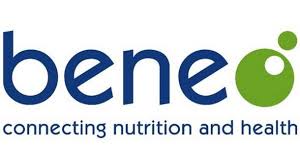sponsored content
Vegan or clean label: What’s more important?
14 Feb 2019Plant-based meat and dairy alternatives are big news, but they often have long ingredient lists. How do manufacturers balance demand for clean label, natural foods when developing plant-based products?
When compared to their dairy and meat equivalents, vegan alternatives usually contain a lot of ingredients, perhaps with thickeners, preservatives, flavourings, oils or hydrocolloids that the average consumer would not recognise. While ‘clean label’ has become a key requirement across the food and beverage industry, the meat and dairy alternative sector seems to be an exception.
In some food categories there is no room for compromise on natural ingredients, such as in foods and drinks for children. However, vegetarian and vegan consumers often are thought to be more accepting of less ‘clean’ ingredients in plant-based meat and milk alternatives because they place more importance on animal welfare.
But what if more natural alternatives were available? A handful of companies is now producing meat and dairy alternatives made from simple, short lists of ingredients. If these prove popular, they have the potential to shake up the whole sector, perhaps forcing major brands back to the product development drawing board.

Yofix Probiotics is one such company, an Israeli start-up that makes a clean label, plant-based yoghurt alternative under its Only brand. The range is made from a blend of ingredients: oats, sesame, sunflower, lentils and coconut, plus probiotic cultures and prebiotic fibres. What is more, the company has consciously chosen to avoid emulsifiers and flavourings, and emphasises a zero waste production process, with a lower carbon footprint and less water use than other manufacturers in the sector. It claims that this approach is one that vegetarian and vegan consumers would like to see more often.
In the meat alternatives space, pulses and recognisable vegetable ingredients such as pea protein, kale, spinach and beans are gaining in popularity, according to Mintel, and the market researcher says clean label attributes like no artificial ingredients or GMOs are often considered essential, particularly among younger consumers of plant-based proteins. Its research suggests that while taste is still the top priority for consumers of meat alternatives, health is also one of the strongest purchase motivators, perhaps casting doubt on the idea that those who buy these products are more interested in animal welfare than what meat alternatives contain.
Of course, what consumers consider natural varies widely, but some of the attributes that make a product ‘clean label’ for consumers are not necessarily those a manufacturer bears in mind when switching out artificial ingredients. For example, a recent poll from ingredient supplier BENEO found low sugar was associated with natural products for 39% of global consumers, while food safety (40%) and ‘pure taste’ (44%) were also top expectations.
For brands in this burgeoning sector, it is becoming increasingly important to stay ahead of the curve and find healthy, natural solutions before dairy and meat alternatives come under more intensive scrutiny for their long ingredient lists. As plant-based eating moves further into the mainstream, the industry should expect mainstream expectations to be applied – and that means cleaner labels.

